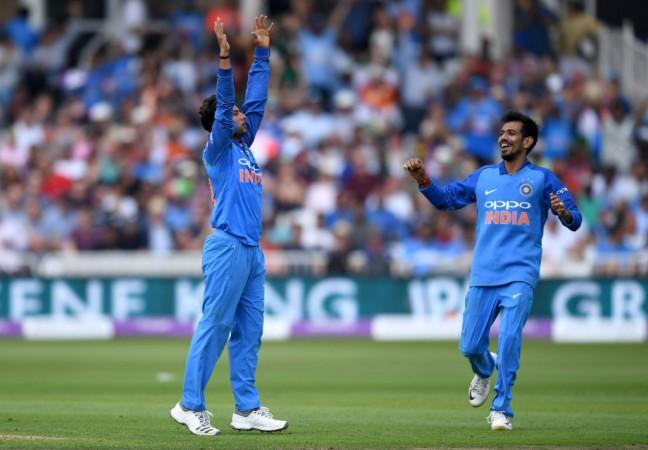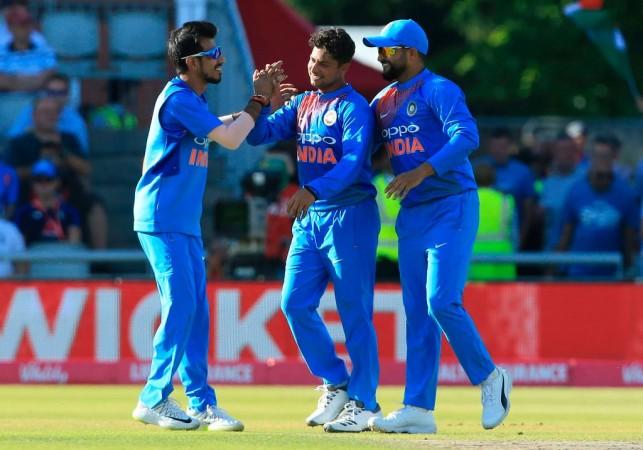Cast your mind back to June 18, 2017. India played Pakistan in the ICC Champions Trophy final and was batted out of the contest to the extent that even their famed top three could not rescue the chase.
India was well past the MS Dhoni regime of captaincy and Virat Kohli, a confrontational captain, had taken over. While the former loved the waiting game, the latter took charge and loved to make things happen and things for India was not happening with their finger spinners. For a large part of Dhoni's successful tenure, the duo of Ravi Ashwin and Ravindra Jadeja was choking the opposition in the middle overs and when they were not, the top three along with Dhoni was chasing targets – sometimes above 350 – down.
But with time, Dhoni's powers began waning and so did Yuvraj Singh's. Suddenly it was either a Kohli masterclass or failure and when it was the latter in the Champions Trophy final, India decided that it would be the end of Ravi and Ravi with the white ball.

While the finger spinners were struggling to make the opposition think, back home in the Indian Premier League, two young wrist spinners were spinning a web around batsmen – Yuzvendra Chahal and Kuldeep Yadav. Inevitably, Kuldeep and Chahal aka Kulcha replaced Ravi and Ravi starting almost two years of unprecedented middle overs success.
Batsmen around the world were left clueless – even the great AB De Villiers and Steven Smith had no answer to the guile of Chahal and mystery of Kuldeep. Their rise coincided with Hardik Pandya's whose presence at number 7 allowed the team to play two wrist spinners without worrying about an extra batsman or the third seamer.
Such was their dominance that India won every series they played with their two spinners together until they met a roadblock in the world's best ODI side in their backyard – England. In that three-match series after taking the lead, India's batting order suffered mini collapses and suddenly the focus shifted from getting the opposition out to having a longer batting order.
This period coincided with an injury to Pandya followed by his suspension and India's next best alternative was Ravindra Jadeja, a spinner. This meant one of the successful spin twins had to sit out outside the subcontinent. In Australia, Chahal went out and Australia's weak batting posted two large totals.
While there is no doubt that Jadeja brings immense value to the team, his place should not block one of India's main weapons with the ball. 'Kulcha' were picked and groomed with the World Cup in mind. Their specific job was to attack the opposition in the middle overs – a phase in the game where batsmen usually settle down and set the platform for a big finish under little threat from opposition bowlers.

Kohli had categorically mentioned that the spin twins were present to pick wickets in the middle overs and that is what they were doing for the better part of two years with only one exception. Since then, India has somehow tilted towards playing a spinner who can keep you in the game with the bat rather than one who can win you the game with the ball.
But India must realise they cannot prepare for an exception – if the top six could not do it with the bat, there is little chance the next two will. On the other hand, most of the games Kuldeep and Chahal have played together, India has not required more than three batsmen to score them the required runs.
Thus, in a choice between match-winner and multi-purpose player the former should always win.









!['Had denied Housefull franchise as they wanted me to wear a bikini': Tia Bajpai on turning down bold scripts [Exclusive]](https://data1.ibtimes.co.in/en/full/806605/had-denied-housefull-franchise-they-wanted-me-wear-bikini-tia-bajpai-turning-down-bold.png?w=220&h=138)



